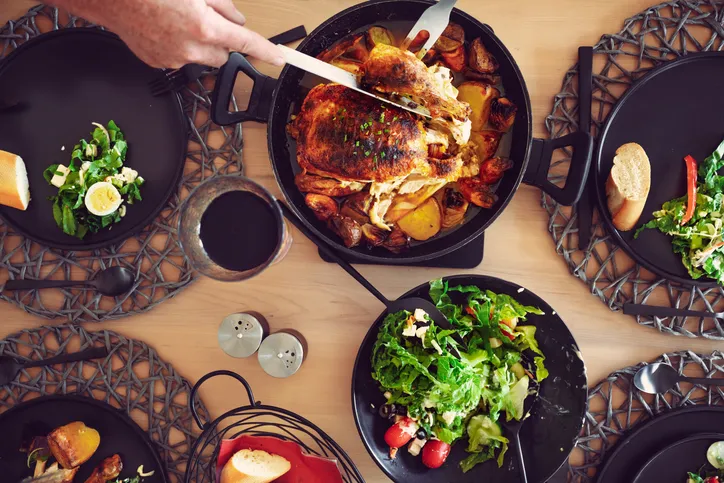Five Tips for a Healthier and Happier Thanksgiving
Thanksgiving is synonymous with a big meal.
If you take some time to pre-plan, you can enjoy it without regret.
Set yourself up for success by eating well throughout the day rather than “saving up” for the big meal.
Prioritize eating a breakfast that contains protein, complex carbohydrates such as whole grains, healthy fats and some vegetables or fruit. Plan to eat either a light lunch or snack, even if you are eating dinner earlier than you normally do. This can help make sure you feel more satisfied throughout the day, and you won’t go into Thanksgiving dinner overly hungry.
Make time for movement.
Whether you enjoy a Thanksgiving turkey trot, or just want to take a walk around the block with family, moving your body can provide a number of benefits, including better digestion, stress relief and a dose of feel-good endorphins.
Start small to build a balanced holiday plate.
We often eat what is on our plate, so start with a variety of smaller portions: proteins, carbohydrates, fruit and vegetables. You can always go back for seconds if you are truly hungry, but starting off small can be helpful when trying to reduce overeating.
Eat slowly.
Take time to thoroughly enjoy each bite, and pause throughout the meal to notice your fullness level. It takes time for our brain to receive signals from our stomach that we are full. Eating slowly and pausing to take note of your fullness level throughout meals can help give the brain a chance to catch up to how full the stomach is. It can also help prevent becoming overstuffed, and the uncomfortable sensation of eating more than our body can handle.
Practice mindful eating.
If your family has special recipes they only make on Thanksgiving, give yourself permission to enjoy these festive, once-per-year foods. Mindful eating includes minimizing distractions, taking in the sight and smell of foods before you eat, and chewing slowly to savor and enjoy the flavors and textures of the food. Making a conscious effort to enjoy special foods can allow your body to take in the full experience of eating. Savoring each bite can help prevent overindulging. Sometimes, when you eat too quickly, you’re not really getting to enjoy the flavor or satisfaction of the food, and you might go back for seconds because you’re not feeling satisfied. Eating mindfully can help bring more enjoyment from smaller portions of special foods.

Ashley Reed, RDN, is a Registered Dietitian Nutritionist. She works at Chesapeake Regional’s Lifestyle Health & Fitness Center in Diabetes and Nutrition Services.